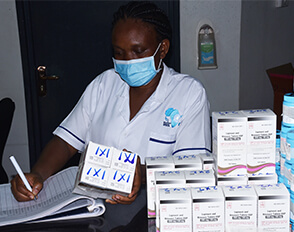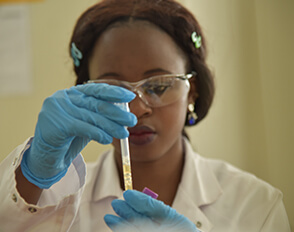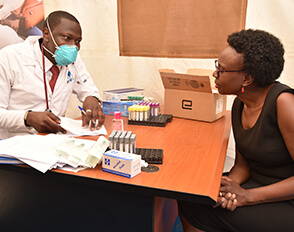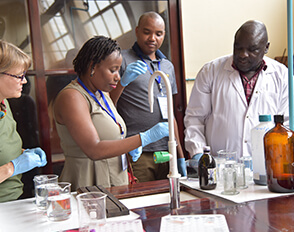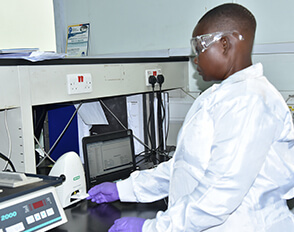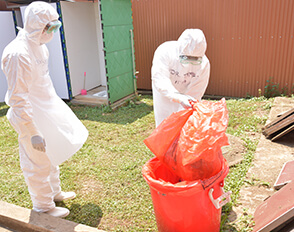
IDI Equips GBV Helpline Facility at the Uganda Child Healthline
Today, Dr Zikulah Namukwaya; the Elimination of Mother-to-Child Transmission (EMTCT) Advisor, on behalf of the Infectious Diseases Institute (IDI) handed over items to the Commissioner for Youth and Child Affairs; Fred Ngabirano, and the Commissioner for Gender and Women; Ms Angella Nakafeero on behalf of the permanent secretary, Ministry of Gender, Labour and Social Development (MGLSD) at the Uganda Child Healthline in Kireka. The assortment of items including computers, office furniture, tents and other communication items procured with funding from The U.S President’s Emergency Plan for AIDS Relief (PEPFAR) through Centers for Diseases Prevention and Control (CDC) will facilitate and strengthen operations at the SAUTI 116 call centre.
The MGLSD centre integrates GBV- support interventions into call centre services to comprehensively respond to cases of violence against women and children. GBV has been existent for many years in Uganda, and 6,000 cases of defilement were reported by the Uganda Police during the COVID-19 lockdown period.
“High-level violence against women, children and boys as well greatly affects different aspects of life including development and productivity. With the support from CDC through IDI, we are directly complimenting the government in implementing the National Development plan and for this we are grateful” Mr Fred Ngabirano, the Commissioner Youth and Children Affairs said.

SAUTI 116 is a toll-free call centre service established by the government of Uganda to receive and respond to cases of violence against children across the country and is available throughout the day. It has been operating since November 2013 receiving calls from across the country. The callers are free to speak in their local languages.
Through the SAUTI 116 helpline, 1932 cases have been reported countrywide in the last 6 months. Out of these, 887 were cases of sexual violence of which 860 victims were female. Although a smaller percentage of the reported cases happened in the community, 80% of the GBV offenders reported were family members within their victims’ homes. This further emphasizes the need for toll-free helpline services to facilitate timely reporting of violence, and effective linkage to GBV support services.
As part of structural HIV prevention efforts, the IDI Health Systems Strengthening programme continues to provide support to community structures and the vulnerable sub-groups to mitigate sexual and gender-based violence, and the associated immediate and long-term complications.
By Nakitandwe Rebecca Melisa
Photography by Kazibwe Abubaker

